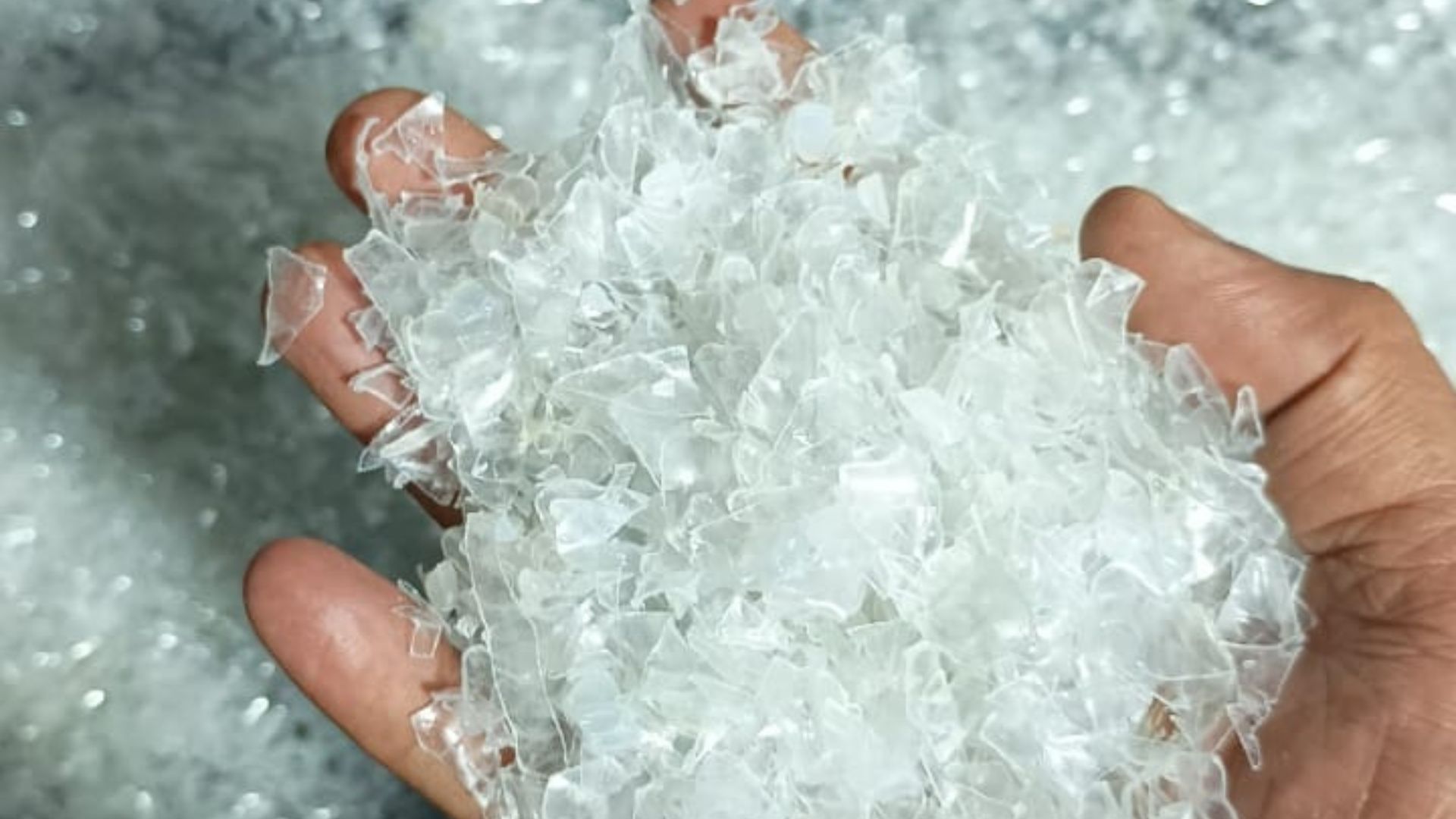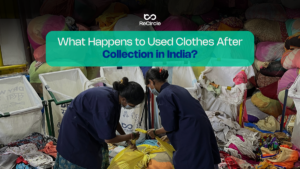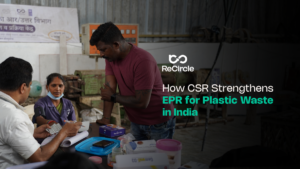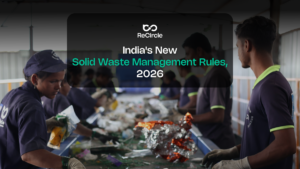For decades, plastic has been both a marvel and a menace. Its durability and versatility transformed industries, but its persistence in the environment created one of the greatest sustainability challenges of our time. Now, as global industries move away from a linear “take–make–dispose” model, India is stepping firmly into the era of the circular economy.
At the heart of this transition lies recycled polyethylene terephthalate (rPET) flakes — the building blocks of a more sustainable packaging and textile industry. And powering this shift are the rPET flakes suppliers in India who are bridging the gap between waste and resource, between discarded plastic and new opportunity.
This article explores the critical role of rPET flakes suppliers, their growing importance in India’s sustainability agenda, and how businesses can align with them to stay compliant, competitive, and future-ready.
rPET Flakes: The Foundation of Circular Plastic
PET (polyethylene terephthalate) is one of the most widely used plastics, commonly found in beverage bottles, food packaging, and textiles. Its lightweight and durable properties make it indispensable — but they also make it one of the most visible forms of plastic waste.
rPET flakes are produced by collecting used PET bottles, cleaning them thoroughly, and processing them into flakes that can be reintroduced into the manufacturing cycle. These flakes serve as raw material for:
- Packaging materials (bottles, containers, films)
- Textile fibers (clothing, upholstery, carPETs)
- Additives
By converting waste into resource, rPET flakes close the loop — a perfect example of the circular economy in action.
Why rPET Matters in India’s Sustainability Landscape
India generates millions of tonnes of plastic waste annually, with PET bottles forming a significant fraction. The informal recycling sector has historically played a major role in collecting and processing PET, but demand is now accelerating due to:
- Regulatory mandates: Policies like the April 2025 recycled plastic content requirement are pushing brands to source verified recycled materials.
- Global market alignment: Export-oriented companies must meet international standards, many of which now require recycled content.
- Consumer expectations: Modern consumers are increasingly aware and supportive of brands that use sustainable packaging.
- Investor focus: ESG (Environmental, Social, Governance) factors are shaping investment decisions, making sustainability a business imperative.
Against this backdrop, rPET flakes suppliers in India are not just vendors — they are enablers of compliance, competitiveness, and credibility.
The Role of rPET Flakes Suppliers in Powering the Circular Economy
1. Ensuring Supply of Recycled Content
Businesses cannot meet recycled plastic mandates without reliable access to rPET. Suppliers ensure a steady flow of high-quality flakes, helping companies meet both domestic and global standards.
2. Maintaining Quality and Safety Standards
Not all recycled plastic is the same. Suppliers who adhere to rigorous cleaning, decontamination, and processing standards provide flakes that are safe for food-grade packaging and other sensitive applications.
3. Providing Traceability and Compliance Support
In today’s regulatory climate, traceability matters as much as the material itself. Reputed suppliers offer documentation and certifications that help businesses demonstrate compliance with EPR and recycled content mandates.
4. Driving Innovation
Leading suppliers are investing in advanced technologies — from hot-wash processes to FDA-approved recycling methods — ensuring rPET can match or even outperform virgin PET in quality.
5. Connecting the Informal to the Formal Economy
India’s recycling ecosystem is heavily dependent on informal waste workers. rPET suppliers often act as intermediaries, integrating informal collection networks into formal supply chains, while also improving worker livelihoods.
Business Implications: Why Companies Must Pay Attention
For decision-makers, the rise of rPET flakes suppliers is not just an environmental story — it’s a business strategy issue.
- Compliance: Without sourcing recycled content, businesses risk falling foul of EPR mandates and facing financial penalties.
- Supply chain resilience: Virgin plastic prices are volatile due to oil market fluctuations. rPET provides a more stable alternative in the long run.
- Brand reputation: Packaging choices are visible to consumers. Companies that switch to recycled content strengthen brand trust.
- Investor relations: Demonstrating circularity supports ESG reporting, a growing demand from investors and regulators alike.
Challenges in Scaling rPET in India
Despite the progress, India’s rPET industry faces obstacles that businesses must understand:
- Quality inconsistencies: Informal collection often leads to contamination in the PET stream, requiring more advanced processing.
- Limited capacity: Demand for rPET is rising faster than supply. Without investment, shortages could disrupt compliance.
- Fragmentation of suppliers: The industry is dominated by small, dispersed suppliers, making it difficult for large brands to secure reliable volumes.
- Lack of standardized certifications: Many suppliers operate without uniform standards, raising concerns about credibility and traceability.
For businesses, these challenges highlight the importance of partnering with reputed and verified rPET flakes suppliers.
How Businesses Can Engage Effectively with rPET Suppliers
1. Build Long-Term Partnerships
Instead of transactional sourcing, develop strategic partnerships with suppliers to secure consistent quality and volumes.
2. Insist on Traceability
Work with suppliers who can provide documentation, certifications, and digital traceability of recycled inputs.
3. Diversify Sources
Avoid over-reliance on a single supplier. Engage multiple suppliers to mitigate risks of disruption.
4. Support Capacity Building
Collaborate with suppliers to scale up processing capabilities, ensuring long-term sustainability.
5. Integrate into Reporting Frameworks
Use the data and certifications provided by suppliers to strengthen ESG reporting and stakeholder communication.
The Bigger Picture: rPET in the Circular Economy
The circular economy is about rethinking waste as a resource. rPET flakes exemplify this principle — they transform discarded bottles into new packaging, textiles, and products. For businesses, this is more than compliance; it’s participation in a systemic shift.
- Environmental benefit: Reduced carbon footprint and lower landfill dependency.
- Economic benefit: Reduced dependence on virgin materials and potential cost savings in the long run.
- Social benefit: Inclusion of waste workers and contribution to a more equitable economy.
By engaging with rPET flakes suppliers India, companies are not just sourcing raw materials — they are actively investing in a circular future.
Why We Matter in This Transition
The journey toward circularity isn’t just about recycled materials—it’s about traceability, transparency, and trust. This is where we, at ReCircle, step in as your partner for the future.
As a Mumbai-based clean-tech waste management company, we are uniquely positioned to:
- Provide traceable, verified recycled materials through our ClimaOne platform.
- Help you meet EPR mandates while ensuring every step of the process is ethically sourced.
- Offer plastic credits that balance out obligations and create measurable impact.
Integrate waste workers into the formal economy, ensuring dignity and opportunity for those at the heart of recovery.For us, compliance is just the starting point. Partnering with us means aligning with a vision of sustainable growth and leadership in the circular economy.
Closing the Loop with rPET
India’s transition to a circular economy cannot succeed without the vital role of rPET flakes. By turning waste into a valuable resource, rPET suppliers are enabling businesses to:
- Meet regulations,
- Lower material costs,
- Strengthen their brands, and
- Deliver on ESG commitments.
But the challenge lies in sourcing responsibly, ensuring traceability, and staying compliant. That’s exactly why we exist—because we combine expertise, technology, and an ethical foundation that businesses can rely on.
Leading the Change Together
The circular economy is no longer a distant ambition. It’s here. It’s urgent. And it’s shaping the future of business in India.
When you partner with us, you’re not just preparing for April 2025 mandates—you’re positioning your business to lead this transition with confidence, clarity, and impact.
The question is: will you follow the change, or will you lead it with ReCircle by your side?
FAQs: Business Perspective
- Why are rPET flakes critical for businesses today?
They provide the recycled content required to meet EPR and global sustainability mandates, while reducing dependency on virgin plastics. - What risks do businesses face if they don’t engage rPET suppliers?
Non-compliance with regulations, supply chain vulnerabilities, reputational damage, and missed ESG investment opportunities. - How can companies ensure the rPET they buy is legitimate?
By working with reputed suppliers who provide certifications, traceability reports, and meet global quality standards. - Is rPET more expensive than virgin plastic?
Initially, yes in some cases. But long-term, it helps mitigate risks of regulatory penalties and market volatility, making it a smarter investment. - How does ReCircle support businesses in sourcing rPET responsibly?
ReCircle offers traceable, verified recycled materials through its ClimaOne platform, while also providing plastic credits and supporting waste workers to ensure ethical and transparent supply chains




